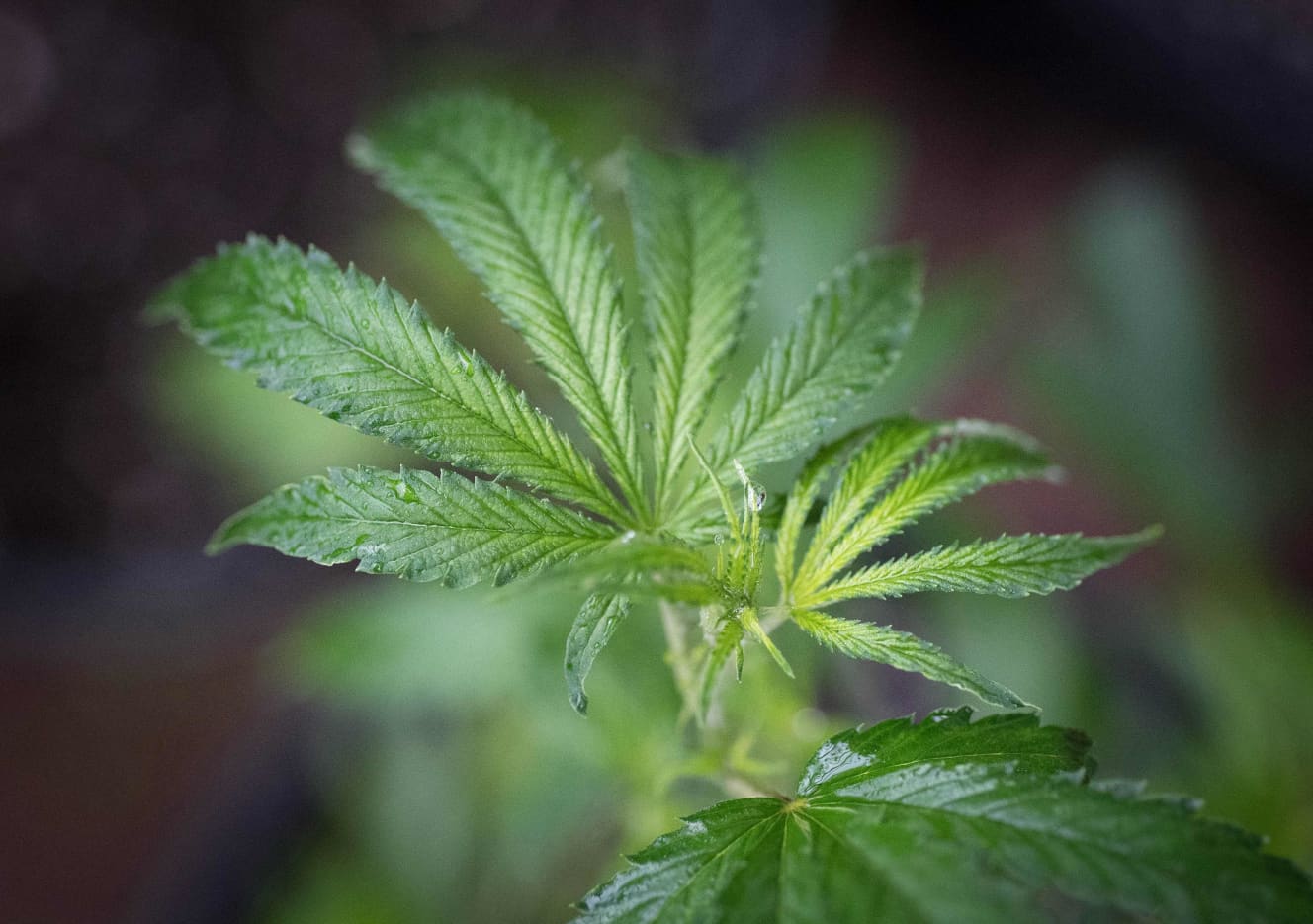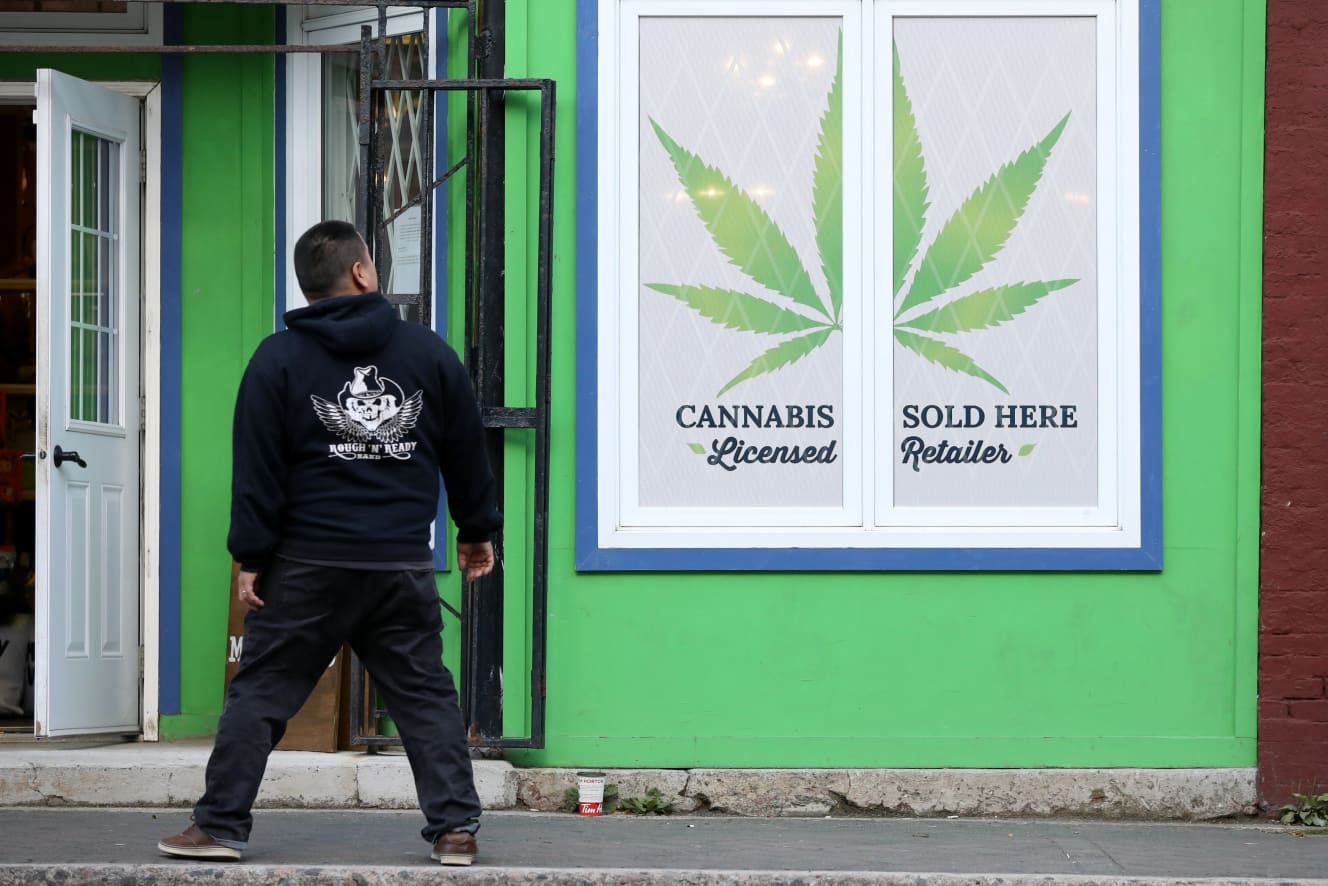Illegal Drugs in Japan — Mr. Matri Talks About the Dangerous Reality of Marijuana
Recruiting friends with smartphones to share cultivation, storage, and sales…and a point system.
The social networking sites such as Twitter are now full of posts about drug sales, with such cloak words as “vegetables” (= marijuana) and “hand-pushing” (= hand-delivering), and promotional phrases such as “we will give you a service product as a gift.
In Japan today, even junior high school students, let alone university and high school students, can purchase drugs if they so desire.
Harumi Seto, former head of the Ministry of Health, Labor, and Welfare’s Drug Enforcement Department, known as “Matri,” points out in his new book, “Children Buying Drugs on Smartphones” (Shincho Shinsho).
In Japan, the number of “children,” including university, high school, and junior high school students, arrested for illegal drug use has been on the rise in recent years, according to Seto. We asked Mr. Seto about the actual situation.
The age range of drug users is from late adolescence to their 40s,” he said. As for marijuana users, 70% of them are under 30 years old.
According to the National Survey of Drug Use by Residents of Japan (2021) conducted by the National Institute of Neurology and Psychiatry, the number of lifetime users of illicit drugs is estimated at 3.62 million. Of these, marijuana accounted for the largest number, about 1.28 million, and the number of people who experienced the drug in the past year increased from about 90,000 in 2019 (the previous survey) to about 130,000 in 2021.
We believe that this is partly due to a decline in awareness of the dangers of drugs, especially among young people. Marijuana, in particular, is perceived as not so dangerous.
This is probably due to the legalization of marijuana in Canada and some U.S. states. Children are interpreting headlines on Internet news and other media as ‘legalization is progressing overseas,’ and when they see descriptions about marijuana, they have a false perception that it is ‘less harmful than cigarettes and alcohol’ and ‘marijuana is not a bad thing.
In the late 1960s, the American hippie culture spread around the world, and the act of smoking marijuana spread among young people in Japan. Adults of the generation who knew that era may not see marijuana as so dangerous.
Marijuana today is completely different from what it was back then. For example, if marijuana in the past was beer, marijuana today is whiskey. It is about 10 times stronger than it was during the hippie culture. Furthermore, concentrated cannabis products called cannabis wax and cannabis liquids are also emerging. Marijuana is becoming more and more highly concentrated, and some of these products are now so close to dangerous drugs.
Although its dependence is certainly considered weaker than that of methamphetamine and other drugs, marijuana definitely has both mental and physical dependence. There is even a risk of going from dependence to chronic addiction, and from chronic addiction to cannabis psychosis.
Last year in Fukuoka, a 20-year-old man who was addicted to marijuana cut down his family. If a person continues to abuse drugs such as marijuana, he or she becomes a victim of the drug. If they go too far, they can turn from victims to perpetrators.
I don’t want my children to become victims of drug cases. I also want to tell them not to become perpetrators.

The drug abuse is not limited to abuse. Young people are even involved in drug trafficking.
However, the reality of children who buy drugs on their smartphones is not limited to abuse alone. Young people are even involved in drug trafficking.
What is scary about the Internet and social networking services is that they can turn ordinary people into drug traffickers. Drug trafficking used to be something that was done by criminal organizations or those in the periphery, but now it can be done by amateurs as well. They buy a lot of drugs online at a low price and sell them at a high price with a variety of slogans. This kind of thing did not exist before.
On the other hand, amateur “traffickers” are being harmed by “buyers” in their teens and twenties.
There have been cases of kids who started trafficking going to places designated by the person they ordered from and getting robbed. In transactions involving one or two grams of marijuana, victims and perpetrators have been children in their teens and twenties. This is happening because marijuana is now being sold on social networking sites.”
Can’t we crack down on drug trafficking on social networking sites?
Both the Drug Enforcement Administration and the police are working hard to monitor and crack down on this. However, it has not gone away. The people who are involved in drug trafficking know how to slip through. As soon as they feel that they are in trouble, they close their accounts, change to a different account name, and continue trafficking.
Once the traffickers have hung up customers on social networking sites, they direct them to Wickr or Telegram, which are confidential apps that can erase communication records, so that they cannot be traced. The spread of smartphones and SNS has brought about a “trafficking revolution,” as they say.

Most of the marijuana traded in Japan is “domestically produced”… cultivation, storage, and sales are shared among friends.
Furthermore, in his book, Mr. Seto cites the “increase in cultivation offenses” as a recent characteristic of marijuana offenses. Abuse, trafficking ……, and even cultivation.
Most of the marijuana trafficked in Japan is grown in Japan. Indoor cultivation has taken hold. Closets and closets are converted and sodium lamps are used instead of sunlight to create four seasons so that marijuana can be harvested three to four times a year. The method is also available on YouTube. Growing marijuana is the same as growing vegetables, just pick it, dry it, and you’re done. No great skill is required.
Some people grow it for personal use, but as their harvest increases, they will be motivated to sell it. If their friends and associates want some, they will sell it. Growing and selling marijuana has become a way to make a quick buck.
Are there people who just grow marijuana and sell it?
I don’t think so. I don’t think so,” he said. “As they continue to abuse marijuana, their interest in it grows, and they probably start growing it out of a desire to make it better.
However, the number of people who are involved in marijuana cultivation for business purposes is also increasing. They recruit friends online to form groups and share the responsibility of cultivation, storage, and sales. Contact is made through online calls on a confidential app.
Some groups even use virtual currency instead of cash for their transactions. Those involved are college students or older with some knowledge, though.
Some of these guys use a points system. They give points to customers who buy, and how many grams are attached when they reach a certain number of points. If what you are buying and selling is not marijuana, this is now a business.
With wages not rising at all in Japan today, the possibility of young people turning to the marijuana business as a side job is not zero.
Marijuana is proving to be a good source of money, and recently some of those on the fringes of gangster organizations are starting to get involved in it for their own sinog. There are more and more cases of ordinary young kids being offered room and board to grow marijuana and sell it on social networking sites. The marijuana market has become a new source of funding and a source of profit for gangsters who have lost their livelihood.
In the parlance of the world, the yakuza are now involved in the business of the katagi.
The frightening reality is that it is so-called “ordinary kids” who are buying and selling drugs.
Drug cases are no longer limited to gangsters and celebrities. It is so-called ordinary young people who are buying and selling drugs on their phones.
They get involved in drugs for the most mundane of motives, such as being invited by a friend or senior colleague or out of curiosity.
Or, when they are feeling anxious, stressed, or lonely and their minds are weak, they may suddenly see a post on the Internet or a social networking service that says, ‘Drugs will make you feel better,’ and they get involved.
I imagine that such cases are becoming more and more common with the COVID-19 crisis. ……
I have no doubt that the spread of coronas is having an impact,” he said. It is true that the frequency of use and intake of drugs by drug abusers is on the rise, as many are driven by anxiety and agitation due to behavioral restrictions and the worsening economy.
On the other hand, we also see cases where people turn to drugs because of boredom. When marijuana use was discovered in the athletic department of a certain university, some students stated their motivation as ‘I was bored with Corona.
The recent marijuana and drug problems may also be a testament to the deterioration of Japan.
Drug crimes are one social problem that reflects the times. However, the media makes a fuss when a celebrity is arrested, and the public only takes an interest in the drug problem at that time. We and the media need to be more proactive in communicating the reality and the nature of the problem.”
HarumiSeto, Director of the Japan Institute on Drug Problems and Vice President of the International Narcotics Information Forum, was born in Fukuoka Prefecture in 1956. After graduating from the Faculty of Pharmaceutical Sciences at Meiji Pharmaceutical University, he was employed by the Ministry of Health and Welfare’s Drug Enforcement Agency, where he worked on the front lines of drug crime investigations. Retired in 2018. He is the author of “Matri: Health Ministry Narcotics Control Officer” (Shincho-Shinsho), and in July he published “Children Who Buy Drugs on Their Smartphones” (Shincho-Shinsho).
Interview and text by: Sayuri Saito Photo: Afro
